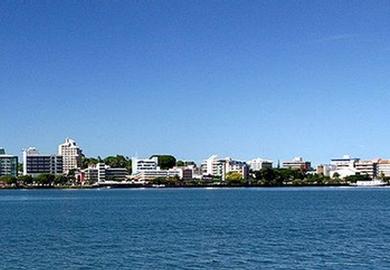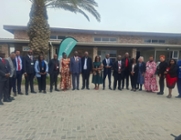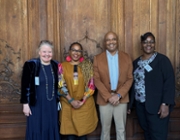Nadi meeting to discuss region's urban challenges and identify scalable solutions

24 March 2015
Nadi meeting to discuss region’s urban challenges and identify scalable solutions
Nadi, Fiji, 24 March, 2015 - The need for urban growth management plans and strategies to guide water, sanitation and hygiene (WASH) planning in informal settlements was a key message of the Water and Sanitation Services in Informal Settlements Workshop which ends today in Nadi, Fiji.
“The economic and public health cost of poor water, sanitation and hygiene reaches beyond settlement boundaries, and impacts the whole city” said Isabel Blackett, Senior Sanitation Specialist, WSP-World Bank Group. Recognising the contribution of all levels of government to the delivery and improvement of WASH services in the region is key as is the role that cities and local authorities play as key urban actors and community connectors.
Over 60 participants from across the Pacific region have arrived to participate in the Workshop led by the Water and Sanitation Program - World Bank in partnership with UN-Habitat, Asian Development Bank and UNICEF. The Workshop precedes the Pacific Urban Forum (PUF) to be held over the next three days at the Tanoa International Hotel.
The PUF with the theme ‘Towards a Pacific New Urban Agenda: Harnessing Opportunities in a Post-2015 environment’ brings together urban policy makers and practitioners, local authority representatives, development partners, academics and the private sector to discuss the region’s urban challenges and to identify practical and scalable solutions to these issues.
The Forum will aim to secure renewed commitment by country representatives for sustainable urban development and redefine a ‘New Urban Agenda’ for the Pacific ahead of the finalization of the Sustainable Development Goals in September 2015, a new global climate change agreement in December 2015 and the United Nations Conference on Housing and Sustainable Urban Development in 2016.
The meeting is being jointly organized by the United Nations Settlements Programme (UN-Habitat) and the Commonwealth Local Government Forum Pacific office (CLGF Pacific).
ENDS
Back to News





